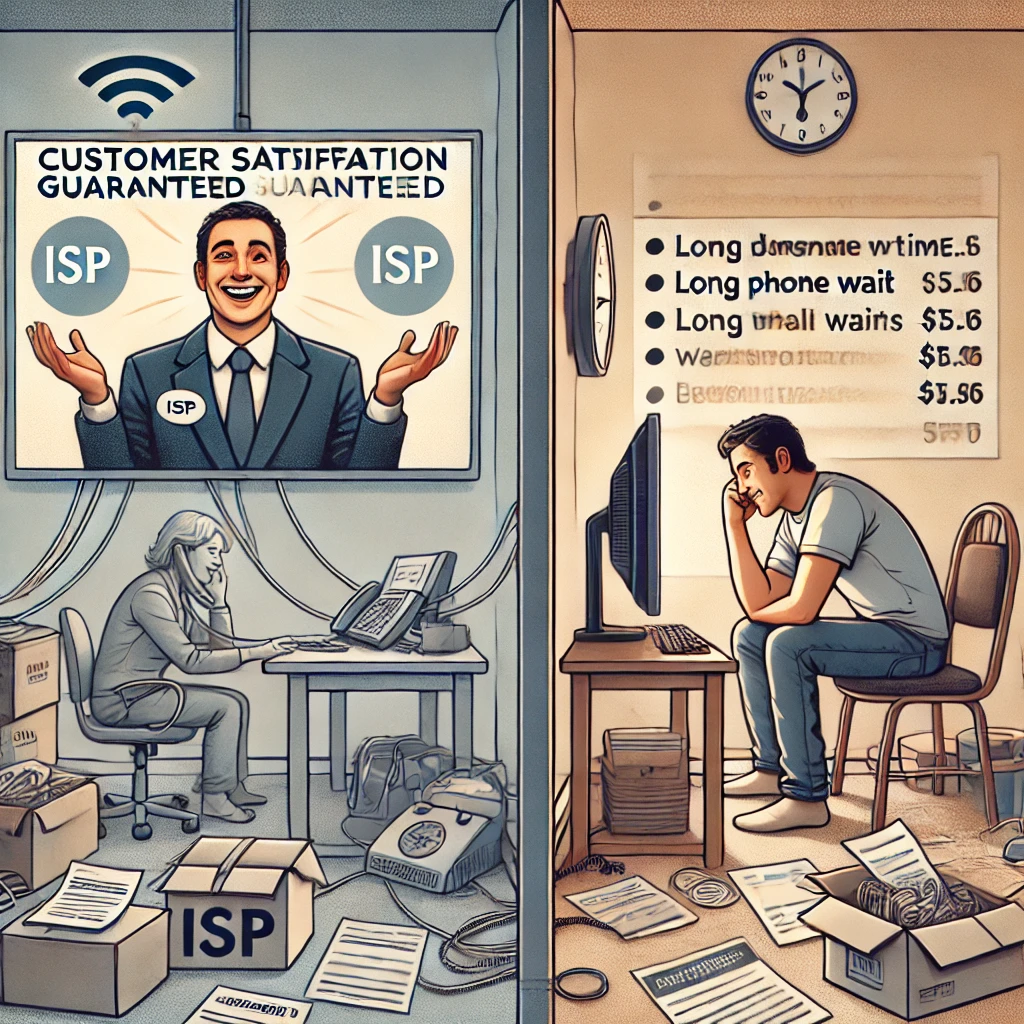Lobby groups for internet service providers (ISPs) are doubling down on claims that their customer service is so outstanding that no additional regulations are needed. In a recent filing with the Federal Communications Commission (FCC), organizations like NCTA—The Internet & Television Association—and USTelecom argued that market competition forces providers to prioritize customer satisfaction.
NCTA emphasized that “providing high-quality products and services is a competitive necessity.” The group further argued that new government-imposed standards would “micromanage” operations, which they see as unnecessary in today’s marketplace. Similarly, USTelecom pointed to advancements like AI-powered chatbots as evidence of ISPs’ commitment to efficient customer service.
The Disconnect: What Customers Are Really Experiencing
While lobbyists paint a rosy picture, customers across the U.S. tell a different story. Reports from the Mt. Hood Cable Regulatory Commission in Oregon and the California Public Utilities Commission (CPUC) reveal a litany of complaints, ranging from unresponsive automated systems to prolonged outages and billing issues.
The CPUC found that only 26% of California households have access to two or more broadband providers, undermining claims that competition alone ensures quality. Many customers feel trapped with subpar service due to a lack of alternatives.
For example, CenturyLink users in some regions reported waiting over a month for outage repairs, while Comcast users in Oregon described navigating “doom loops” of automated systems with no resolution in sight.
The Accessibility Gap
Advocacy groups for individuals with disabilities argue that ISPs are failing to meet basic accessibility needs. They’re calling for standards that require live support through accessible channels like American Sign Language (ASL) video calling, as well as simplified processes for returning equipment or canceling services.
“AI tools can help, but they’re not enough,” these groups assert, urging the FCC to mandate live customer service as a baseline requirement.
FCC Inquiry Faces Political Challenges
The FCC launched an inquiry into ISP customer service practices last month, citing hundreds of thousands of complaints received annually. Outgoing Chairwoman Jessica Rosenworcel stressed the need for better protections, saying, “We cannot ignore these complaints, especially when we know it is possible to do better.”
However, with Republican Brendan Carr set to take over as FCC Chair, the inquiry may be halted. Carr has expressed skepticism about the FCC’s authority to regulate customer service and instead advocates for reducing regulatory barriers to encourage competition.
Carr’s stance aligns closely with industry demands to roll back existing regulations. NCTA, for instance, argued that cable providers face “unfairly skewed” regulations compared to other communication services.
What’s Next for Consumers?
As the FCC navigates this contentious debate, the stakes for consumers remain high. Will ISPs be held accountable for delivering the quality service they promise, or will deregulation leave customers grappling with the same frustrations? Advocacy groups, state regulators, and millions of internet users hope for the former—but the final decision rests with an FCC leadership inclined toward the latter.







